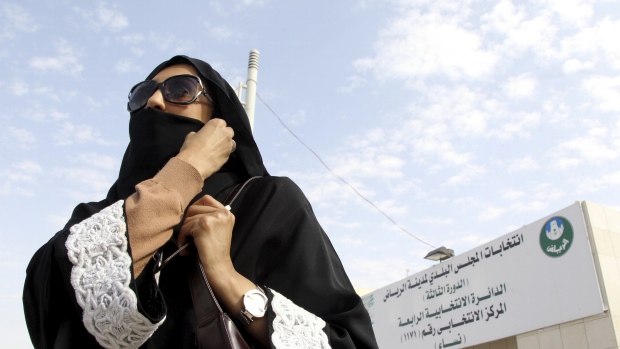-
Tips for becoming a good boxer - November 6, 2020
-
7 expert tips for making your hens night a memorable one - November 6, 2020
-
5 reasons to host your Christmas party on a cruise boat - November 6, 2020
-
What to do when you’re charged with a crime - November 6, 2020
-
Should you get one or multiple dogs? Here’s all you need to know - November 3, 2020
-
A Guide: How to Build Your Very Own Magic Mirror - February 14, 2019
-
Our Top Inspirational Baseball Stars - November 24, 2018
-
Five Tech Tools That Will Help You Turn Your Blog into a Business - November 24, 2018
-
How to Indulge on Vacation without Expanding Your Waist - November 9, 2018
-
5 Strategies for Businesses to Appeal to Today’s Increasingly Mobile-Crazed Customers - November 9, 2018
Saudi Voters Elect 20 Women for Local Government Positions
Additional sources compiled by CBS News report that Lama al-Suleiman was elected in Saudi Arabia’s second largest city of Jiddah, Hinuwf al-Hazmi was elected in the northern region of al-Jawf, and Mona el-Emery and Fadhila al-Attawy were elected in the northwestern region of Tabuk.
Advertisement
About 7,000 candidates, among them 979 women, were competing for 2,100 seats on municipal councils across the country, the Associated Press reported.
The 18 successful candidates were among more than 900 women to run in the first election held since late Saudi King Abdullah announced in September 2011 that women would be allowed to vote in the next election.
Still, women face challenges on the campaign trail: Because of Saudi Arabia’s strict policy of segregation of the sexes, they can not address male voters directly and have to speak from behind a partition – or have male relatives speak for them.
More than 1.35 million men had registered to vote this time around versus a little more than 130,000 female registered voters.
According to The Washington Post, among the female winners were both nationally prominent women as well as the lesser known candidates.
All though these elected female candidates represent just one person of the roughly 2100 municipal council seats but this election is a symbol of a step forward towards women empowerment in the nation.
Women candidates won in provinces such as Makkah, Jeddah, Riyadh Qatif, Qasim, Hail, Al Jouf, Al Ahsa and Jazan, local media reported ahead of a formal announcement.
Restaurants and other public facilities are segregated, a division reflected in the voting, when men and women cast ballots at separate facilities. Women are nonetheless not allowed to drive & are governed by guardianship laws in that give men remaining allege over aspects of their lives like marriage, travel and better education.
Overall turnout in Saturday’s municipal polls throughout the Gulf kingdom was 47.4 percent, with a total of 702,542 voters, Municipal and Rural Affairs Minister Abdullatif bin Abdulmalik al-Shaikh said. Still, the historic election of at least 19 women is a sign that the country is serious about societal change, even if it proceeds at a pace that for many is frustratingly slow.
Human Rights Watch Middle East director Sarah Leah Whitson said Saudi Arabia’s political and cultural segregation of men and women is “making it hard for women to participate and build on this progress to create momentum for further women’s rights reforms”.
Advertisement
In 2013, he named women to the appointed Shura Council, which advises the cabinet.





























